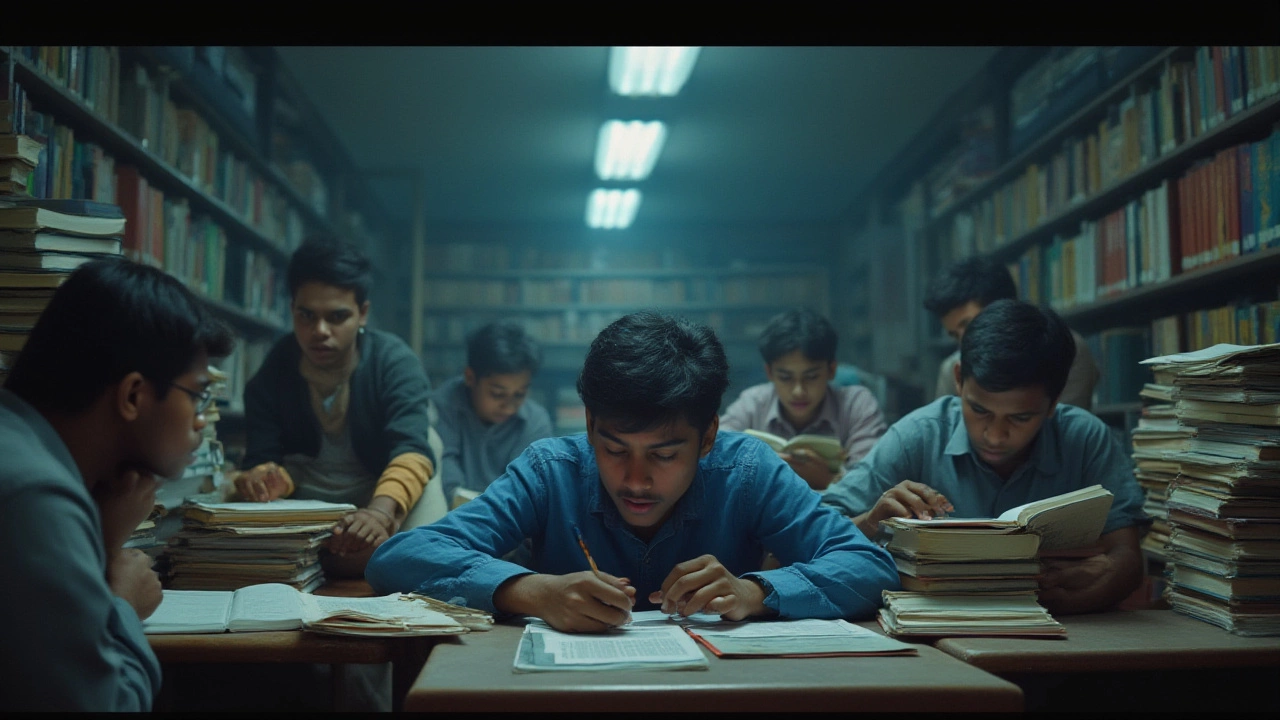Test Pressure: Understanding and Managing Exam Stress
When dealing with test pressure, the intense stress students feel before and during important examinations. Also known as exam pressure, it can affect performance across board exams, competitive tests, and university admissions. Test pressure isn’t just a feeling; it’s a mix of time constraints, high expectations, and the fear of failure. This combination creates a cycle where anxiety reduces focus, which then hurts scores, feeding the anxiety back again. Understanding this loop is the first step to breaking it.
Practical Ways to Reduce Test Pressure
When students experience exam stress, the physiological and mental strain triggered by high‑stakes tests, it amplifies test pressure and can derail even well‑prepared candidates. The link is simple: exam stress increases cortisol levels, which impairs memory retrieval. Strategies like timed mock tests, breathing exercises, and scheduled breaks directly target the stress source, lowering overall pressure. By practicing under realistic conditions, learners train their bodies to stay calm when the real exam arrives, turning stress into a performance enhancer rather than a blocker.
Another key player is the competitive exam, any high‑level test such as JEE, NEET, or national board exams that select students for limited seats. Competitive exams raise the stakes, so test pressure naturally spikes. However, the pressure requires structured preparation: clear goal setting, incremental milestones, and regular self‑assessment. When these elements are in place, the pressure acts as a motivator, pushing learners to refine their weak spots without crushing confidence.
In India, the CBSE board, the Central Board of Secondary Education that governs school curricula and exams across the country is often cited as a major source of test pressure because its nationwide exams determine future academic tracks. Understanding the CBSE’s grading patterns, question styles, and revision timelines helps students anticipate challenges and plan ahead. When combined with personality‑type insights—like knowing whether you thrive under tight deadlines or need longer preparation periods—you can customize study plans that align with both the board’s demands and your personal strengths.
All these pieces—exam stress, competitive exams, CBSE board dynamics, and personal study habits—interlock to shape the overall experience of test pressure. Below you’ll find a curated collection of articles that dive deeper into each aspect, offering real‑world examples, data‑backed tips, and step‑by‑step guides. Whether you’re battling last‑minute nerves or planning a long‑term preparation strategy, the resources ahead will give you concrete tools to keep test pressure in check and turn it into a catalyst for success.
What makes the Gaokao the world’s most stressful exam? Discover real stats, stories, and survival advice for students facing crushing academic pressure.
View More
